Protecting Scotland's watercourses
The first student to graduate with a PhD from the National Decommissioning Centre is using the knowledge and skills she gained during her research to help protect one of Scotland’s most scenic stretches of water – the River Dee.
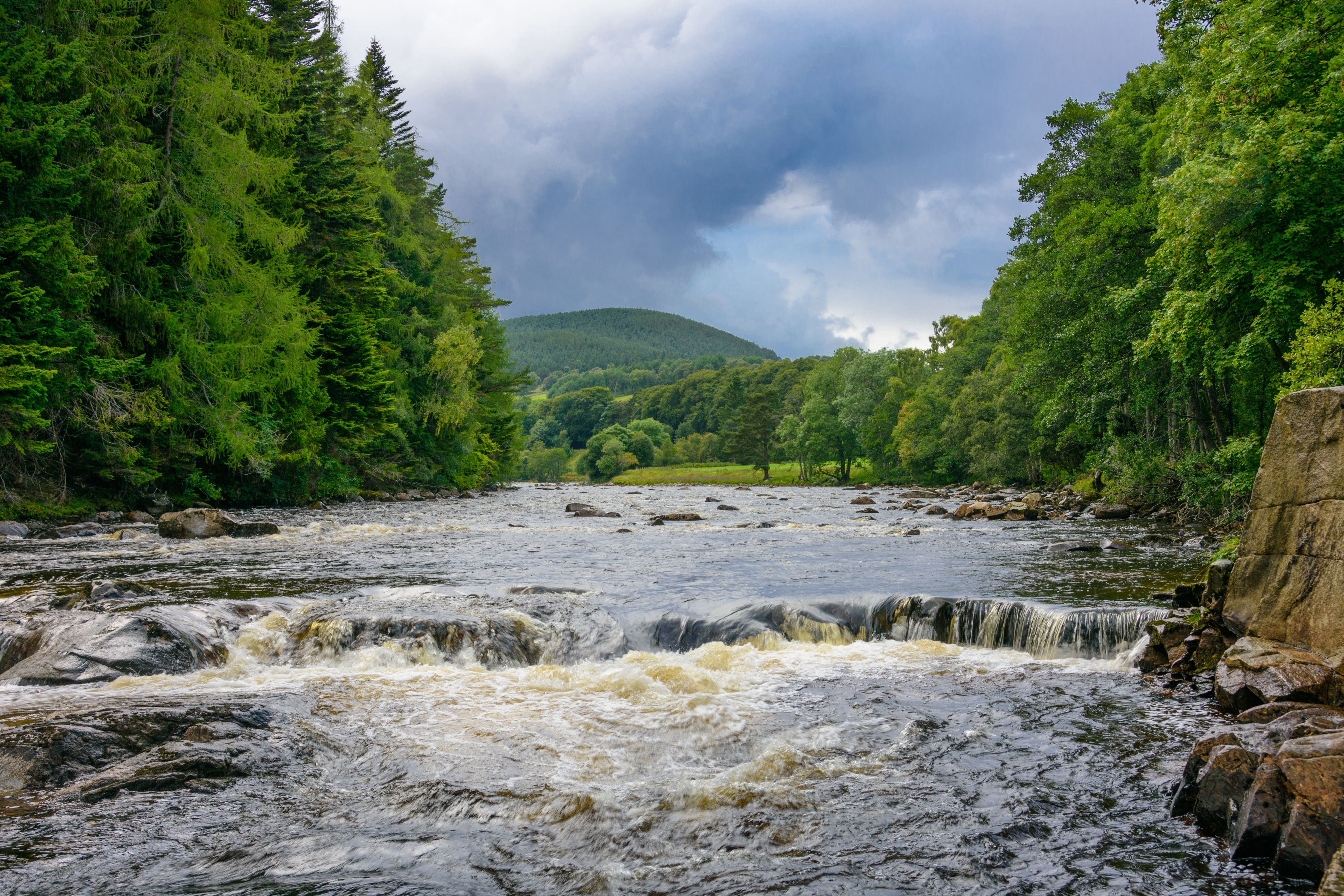
NDC celebrates its first PhD graduate
Graduating on Monday, 26 June, with a PhD in Chemistry, Dr Jessica Gomez-Banderas completed much of the work towards her remarkable achievement during the difficult time of the Covid-19 pandemic.
She is now demonstrating how the knowledge and skills she acquired through her PhD research project can support a wide variety of environmental initiatives.
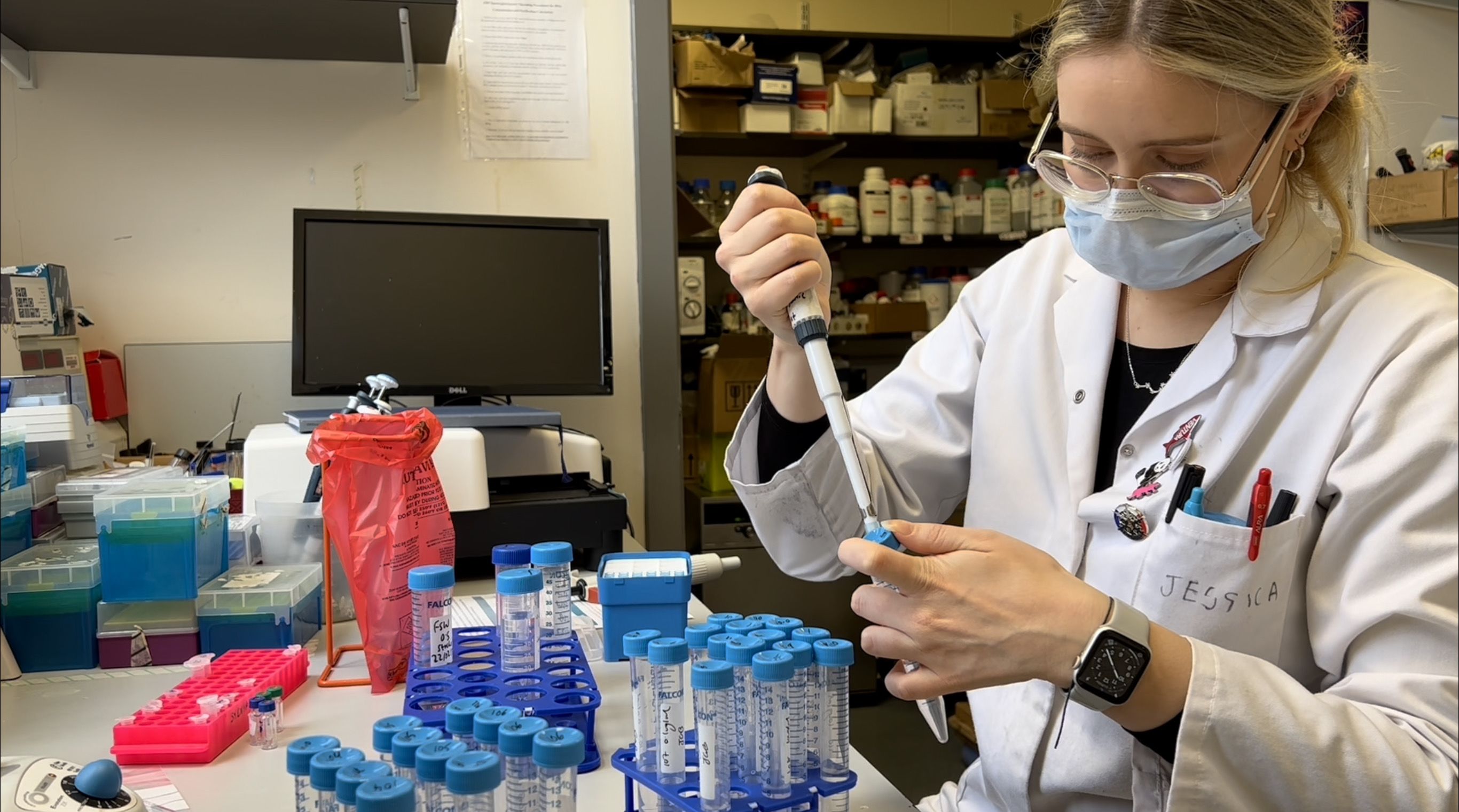
For her PhD at the NDC Jessica researched compounds produced by marine invertebrates and their use in preventing a build-up of marine life on subsea structures. Thousands of tonnes of marine fouling can accumulate on these structures causing damage which is challenging and expensive to repair as well as decommission.
She explains: “My research looked at trying to find a sustainable and environmentally friendly solution to biofouling of oil and gas structures. There are solutions used already and while they solve one problem for industry some have been known to be harmful to biodiversity and could cause more problems down the line by getting into the food chain. I looked at alternatives by studying the compounds produced by invertebrates. It was interesting as I found some compounds that we didn’t know these invertebrates were producing and some did have antifoulant properties.”

Dr Jessica Gomez-Banderas
Dr Jessica Gomez-Banderas
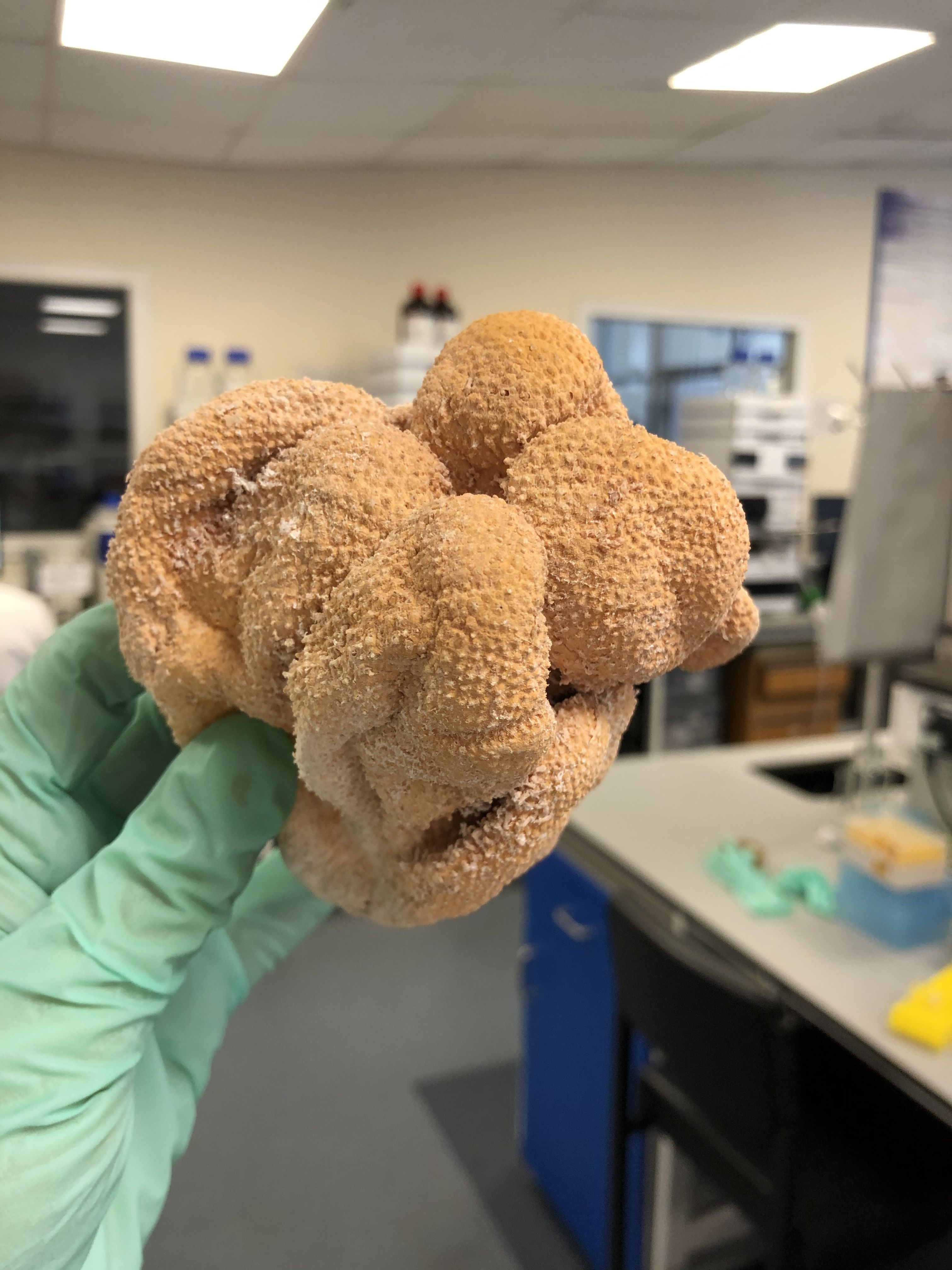
Alcyonium digitatum - a marine invertebrate
Alcyonium digitatum - a marine invertebrate
From the energy industry to inland waterways
Having completed her PhD project Jessica began a role as a Research Scientist in Environmental and Analytical Chemistry at the James Hutton Institute in Aberdeen in March. One of her projects involves analysing hundreds of samples like soil, water and salmon, taken from the length of the River Dee, from its source near Mar Lodge to Garthdee in Aberdeen, for a study funded by the Scottish Government.
The focus of her research is identifying trace substances which may be harmful to the environment or to people such as antibiotics, pesticides and so called 'forever chemicals' (PFAS) that are used in the production of things like Gortex jackets or Teflon containers.
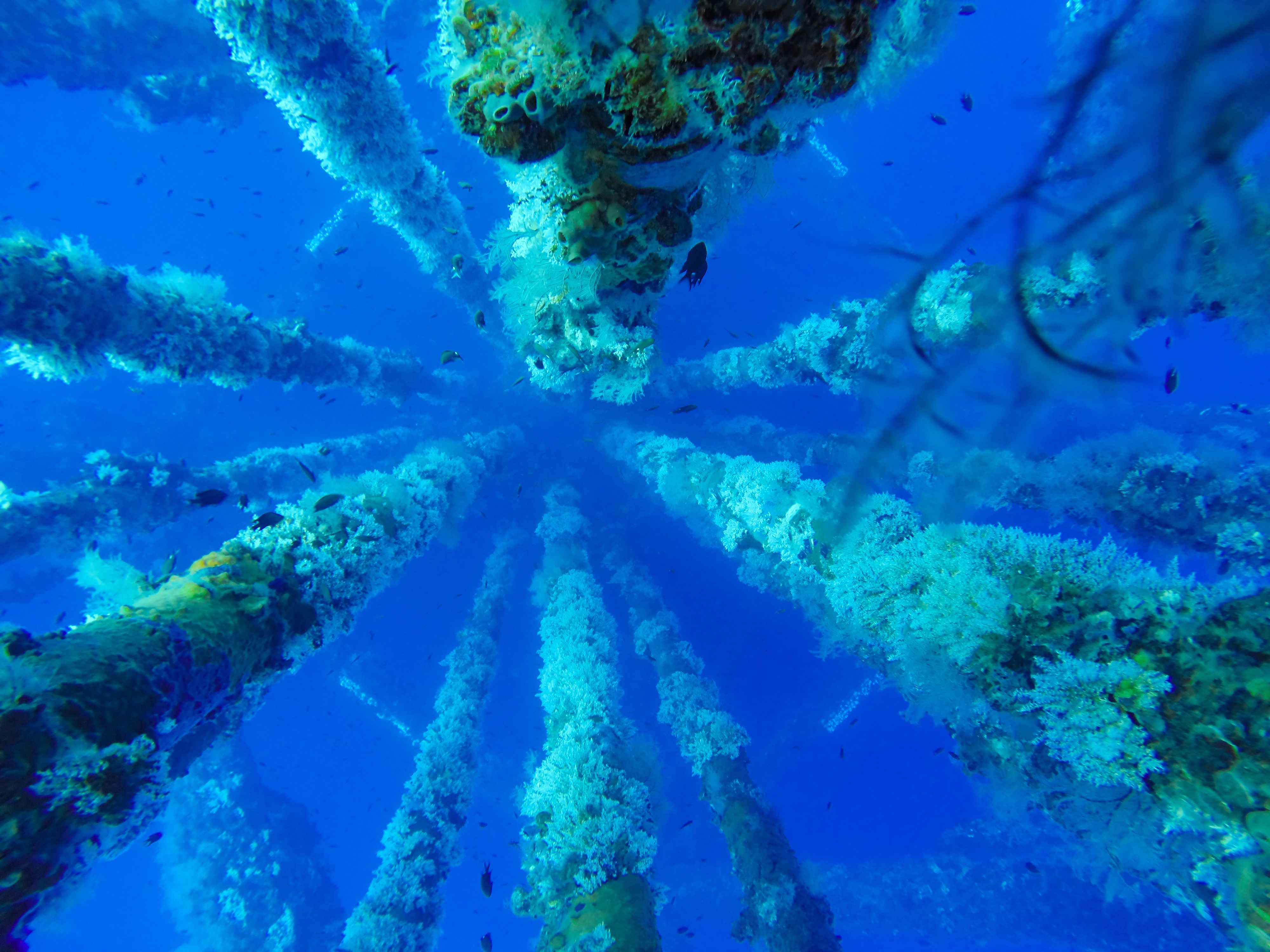
Jessica explains: “The River Dee is a Scottish catchment area and we want to preserve its precious biodiversity. But there are also sometimes chemicals there that we don’t want to make their way to us, even trace amounts can build up and be unsafe. The reasons we see them in the water is because there are waste treatment plants along the river and these plants were not designed to efficiently remove contaminants such as pharmaceuticals.
“We are looking at whether the levels of chemicals are too high. Our research could show for example that prescription antibiotics aren’t being processed properly by our bodies or by waste treatment. This could then influence policy in that the dosage isn’t right or the makeup of the medicine needs to be changed. Or it might be that we could make a recommendation on the types of pesticides that are being used.”
Jessica, who has a MChem in Chemistry from the University of Aberdeen and volunteered as a STEM (Science, Technology, Engineering, and Maths) ambassador during her studies, is used to working with a plethora of samples having spent her PhD analysing a vast amount of marine invertebrates from corals to sponges and starfish. Her samples were collected by partners – diving and research company - Tritonia Scientific Ltd, based in Oban.

In Oban to collect samples
In Oban to collect samples

Drawing on international expertise

But Dr Jessica's PhD took her well beyond the West Coast of Scotland.
“I was very fortunate to have a travel budget as part of my PhD funding and I was able to attend a conference on marine natural products in Ventura, California. It was a fantastic experience to meet experts from around the world and to be able to get the experience of presenting my research,” she added.
Her PhD project was jointly funded by the National Decommissioning Centre, the University of Aberdeen and the Net Zero Technology Centre. Jessica, who worked in Malta as a quality control analyst for a pharmaceutical company prior to undertaking her PhD, was able to test commercial antifoulants which are currently used in maritime industries and has made suggestions for products that should be reconsidered. She also had the opportunity to travel to Brittany, France for a six-week placement in 2022 to learn other testing techniques which helped her to gather crucial data for her PhD project.
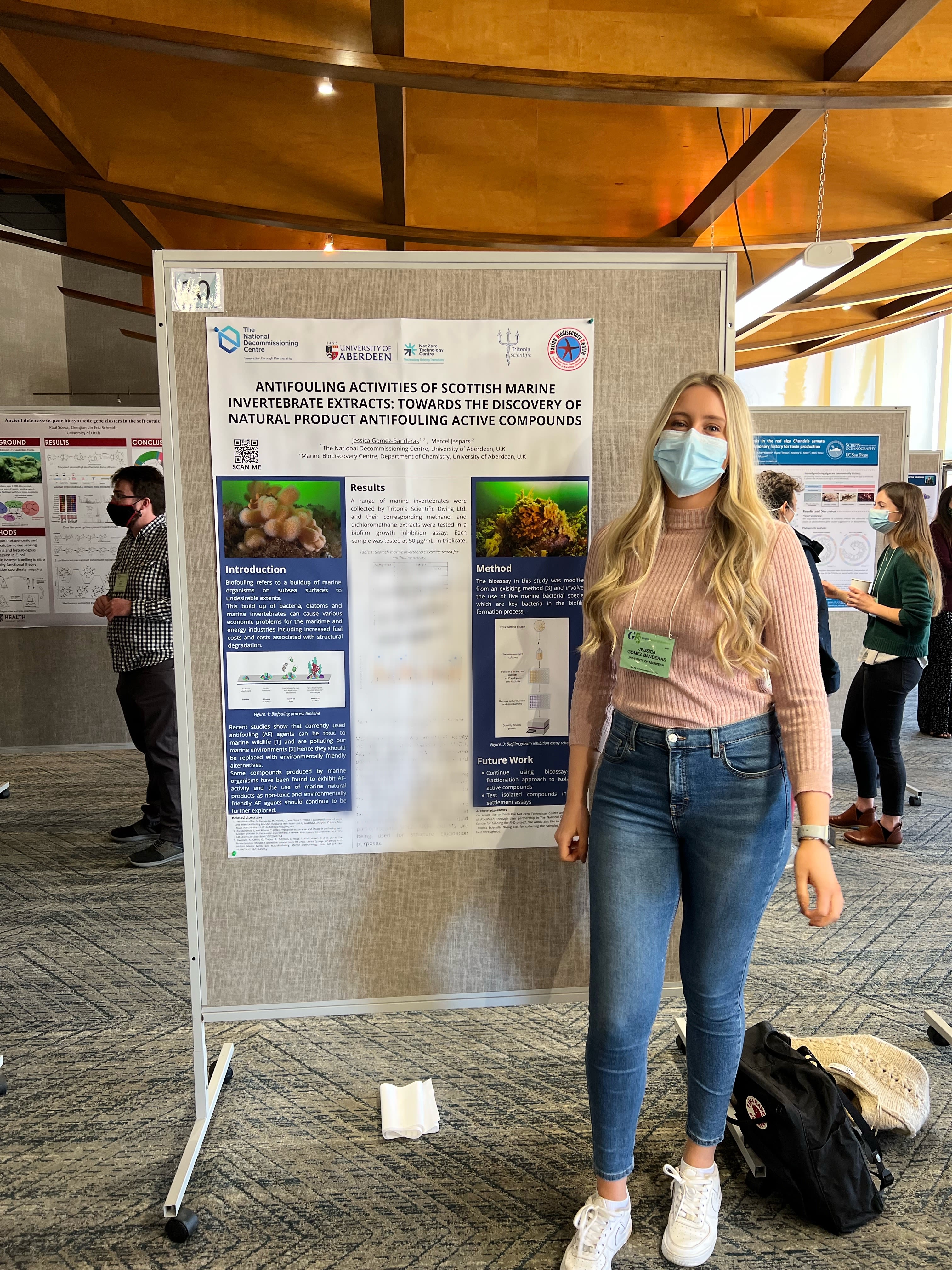

Innovation through study
Jessica’s creative approach to the challenges of her PhD have drawn praise from her colleagues.
PhD supervisor Professor Marcel Jaspars, chair in Chemistry and director of the University of Aberdeen’s Marine Biodiscovery Centre, said: “Jessica’s professionalism and team working were apparent all the way through her PhD. She made her own opportunities, even during the darkest days of the pandemic and was able to develop a new marine biofilm assay with the help of international scientists and a lot of hard work. She was an asset to the lab and her publication record and experience of developing new techniques enabled her to secure a post at the James Hutton Institute. I wish her the best of luck in her career.”
NDC Director Professor Richard Neilson said: “Completing a PhD is an extraordinary achievement and the fact that Jessica is the first from the NDC is very special. On behalf of the team of at the NDC I’d like to congratulate Dr Gomez-Banderas on her graduation and wish her every success for her future career.”

Opened in January 2019, the NDC is a partnership between the University of Aberdeen and the Net Zero Technology Centre. It is co-funded by the two organisations drawing on funding from the UK and Scottish Governments. The Centre addresses the proposal within the Aberdeen City Region Deal to leverage the combined capabilities of academia, industry, and other organisations to help create competitive advantage in decommissioning within the global energy sector. While this is still core, the Centre’s work now also includes aspects of the energy transition, in particular the re-purposing and reuse of assets and the decarbonising of operations and simulation of offshore wind energy systems.


